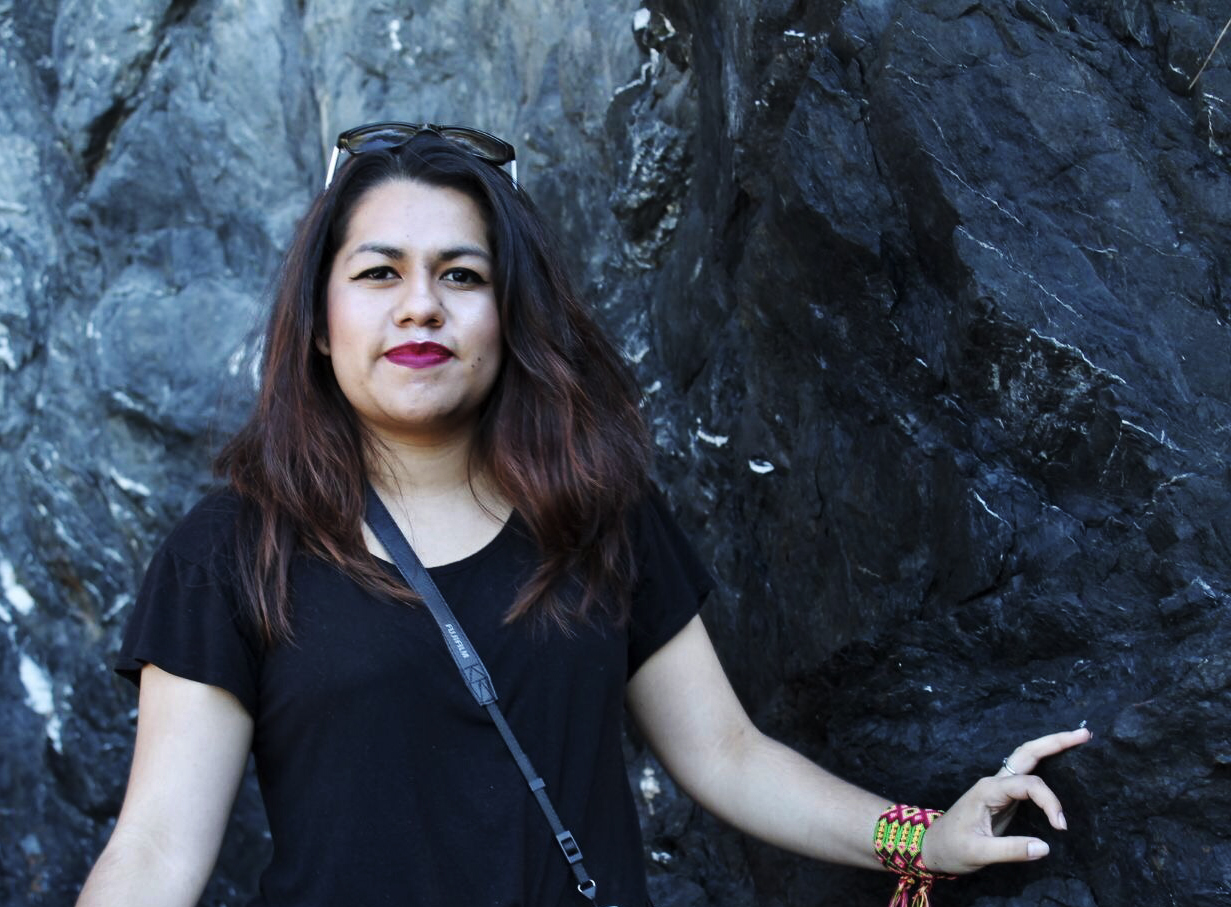DACA recipient speaks out
Hernandez said she left WSU due to campus climate and uncertainty
Mabel Hernandez renewed her DACA protections twice since she was approved in 2013. She is studying to be a high school Spanish teacher.
September 18, 2017
Like hundreds of thousands of other immigrants who overstay their visas, Mabel Hernandez arrived in the U.S. at the age of 7, by plane.
Thirteen years later, Hernandez is enrolled in higher education and is able to work thanks to the Deferred Action for Childhood Arrivals program, instituted in 2012 by President Barack Obama. The last 12 months however, have been particularly uncertain for her, beginning with the increase of activism and hype surrounding the election on the WSU Pullman campus, and culminating with the end of DACA just a few weeks ago.
Hernandez’s family originates from Aguascalientes, Mexico, and immigrated after her father lost his job at Unilever.
She said she has always been aware of her status as an undocumented immigrant and remembers her parents sitting her and her sister down as children and explaining how many of the rights of passage normal American children go through would be a little bit different for them.
“There are certain things that you are not going to be able to pursue or have when you grow up,” Hernandez recalled. “They were being vague at the time. Now that I am older, I know exactly what they meant.”
Hernandez said she felt especially different during her time at WSU. Over the course of the 2016 school year, several incidents at the school led her to feel unsafe and unwelcome at the college, and the university’s response to the issues didn’t reassure her, she said.
The three incidents she remembers most clearly were the Trump wall protest before the election, a post-election celebration rally and fliers that went up in February urging students to report immigrants to Immigration and Customs Enforcement.
WSU President Kirk Schulz responded in a tweet, “At WSU, we want an environment that is welcoming for everyone and we continue to remain very supportive of our undocumented students.”
Hernandez said Schulz’s response seemed similar to the university’s many other statements on other issues, leaving her still unsure whether she is really welcome on campus.
“It seemed like generic messages were being sent to students,” she said. “It seems to me those were the constant messages being said, but they weren’t being shown.”
Her sentiments have been echoed by Andrea Chavez, WSU student and Unity @ WSU/SPLC member, who is an undocumented student who achieved naturalization, and therefore is not eligible for DACA.
Chavez said that she felt the campus had changed since her freshman year, especially for minorities.
“I can just feel [it],” Chavez said. “Everyone’s more on edge, especially people who are minorities on campus. I think just generally, besides campus, we are just exposed everywhere, anywhere we go.”
Hernandez left WSU in May and returned home to Seattle to enroll in community college. She is still working toward the same degree and career, becoming a high school Spanish teacher, but she feels WSU is not the place for her to finish her education.
“Being told you are not accepted in this institution, by a group of students, takes a toll on somebody,” she said, “especially when the political environment is attacking you. As a whole, everything was a big weight on my shoulders.”
Marcela Pattinson, assistant director of Community Relations and Outreach for the Office of Multicultural Student Services at WSU, said she is working to help students and groups have the resources to understand how changes in immigration policy might affect them.
“The reality is the undocumented spectrum is huge,” Pattinson said. “Every student is unique.”
She said students can be overwhelmed by the complexity of the immigration process, which has been compounded by the now looming Oct. 5 deadline to apply for renewal of DACA before the program ends.
In some cases, she said, students who are struggling with the process or are uncertain of their status never come to her for help, preferring to remain unnoticed.
“Some students don’t want to talk to me, not because they don’t like me,” she said, “because they want to be normal. They don’t want to hear someone say ‘I’m undocumented.’”
She said sometimes that attitude extends to activism.
She said many students she knows who have the drive and passion of activists, prefer not to participate in public events, such as marches or the sit-in on campus a few weeks ago. Instead, they prefer to quietly work with the administration to make sure their concerns are heard.
“Some students have the drive, they have the personality to say ‘I am [undocumented], I’m going to work to better the policies and procedures I have here, we care and I care for the ones coming behind me,’” she said.
In addition to activism, groups on campus have also created a fundraiser to pay for students’ DACA renewal applications.
Hernandez said in February, her third DACA application was approved. She said each subsequent application costs more than $400 and after December 2016, the fee increased to $495. In total, she has paid around $1,300 in application fees to be able to work and apply for aid and scholarships in the U.S.
Hernandez’s DACA protections expire in February 2019, and she said she doesn’t know what she’ll do when that time rolls around.
Young undocumented immigrants, some of which are DACA recipients, are frequently referred to as “Dreamers,” an allusion to a 2001 immigration reform bill that was introduced but never adopted. Versions of the bill have been introduced every session with the most current iteration sponsored by Sen. Lindsey Graham.
Hernandez said she hopes Congress will develop a solution to replace DACA before her permit expires, but until then, she’ll focus on what she can control.
“Now you have students and adults that are ‘Dreamers’ that are in a limbo,” she said. “I can’t make plans because I don’t know what is going to happen. As of now, it’s just working and saving money for whenever, whatever expenses might occur in my future.”










